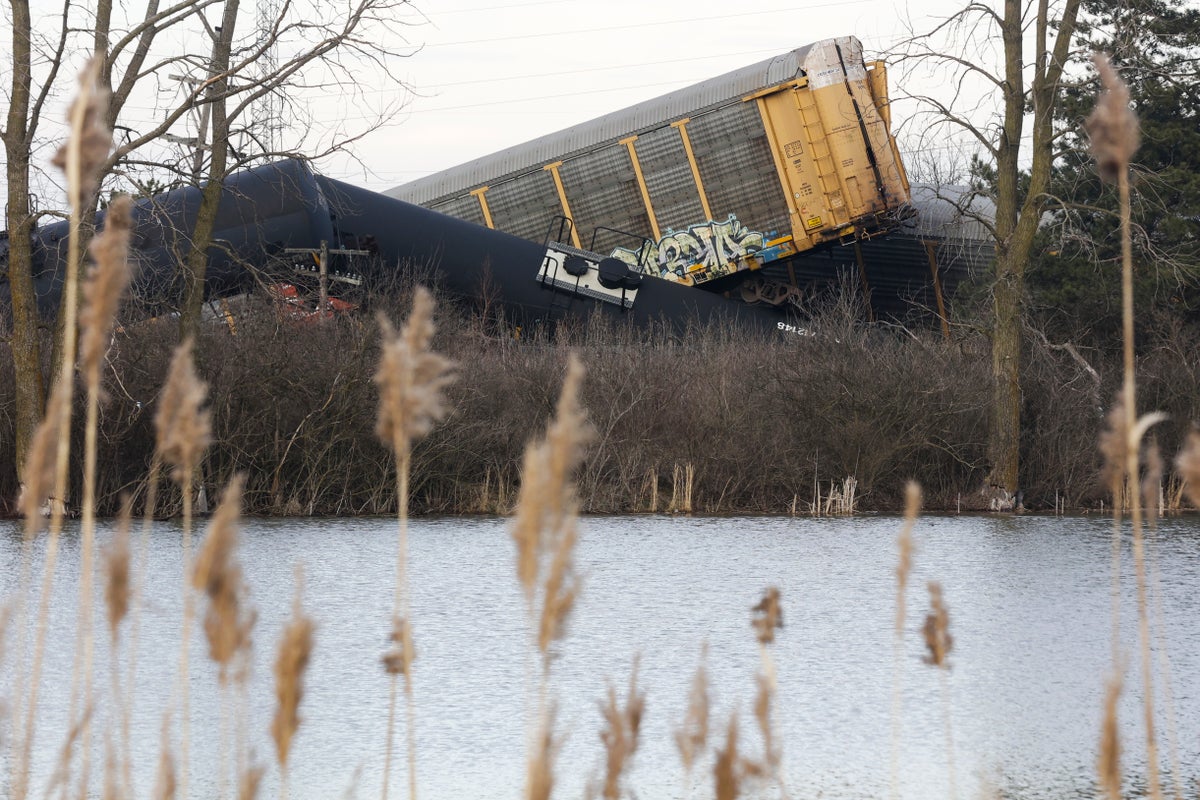
Authorities in Ohio say there is no indication of any risk to public health from the derailment of a Norfolk Southern cargo train between Dayton and Columbus, the second derailment of a company train in the state in a month.
Clark County officials say about 20 of the southbound train’s 212 cars, including four tankers, derailed at about 4:45 p.m. Saturday in Springfield Township near a business park and the county fairgrounds. Springfield is about 46 miles (74 km) west of the state capital of Columbus.
As a precaution, residents living within 1,000 feet were asked to shelter in place and responding firefighters deployed the county hazmat team as a precaution, but officials early Sunday said the train wasn't carrying hazardous materials and there was "no indication of any injuries or risk to public health at this time.”
A crew from Norfolk Southern, the hazmat team and the Ohio Environmental Protection Agency “each independently examined the crash site and verified there was no evidence of spillage at the site,” officials said. Norfolk Southern said no hazardous materials were involved, county officials said earlier.
County officials say environmental officials have confirmed that the derailment is not near a protected water source, meaning there is no risk to public water systems or private wells.
Officials said two of the tankers were carrying residual amounts of diesel exhaust fluid and the other two had residual amounts of polyacrylamide water solution, which they called “common industrial products shipped via railroad.”
Ohio Governor Mike DeWine said late Saturday night that President Biden and Transportation Secretary Pete Buttigieg had called him “to offer help from the federal government.”
On Feb. 3, 38 cars of a Norfolk Southern freight train in East Palestine, in northeast Ohio near Pennsylvania, derailed and several of the train’s cars carrying hazardous materials burned. Though no one was injured, nearby neighborhoods in both states were imperiled. The crash prompted an evacuation of about half the town’s roughly 5,000 residents, an ongoing multigovernmental emergency response and lingering worries among villagers of long-term health impacts.







